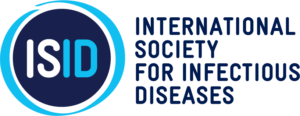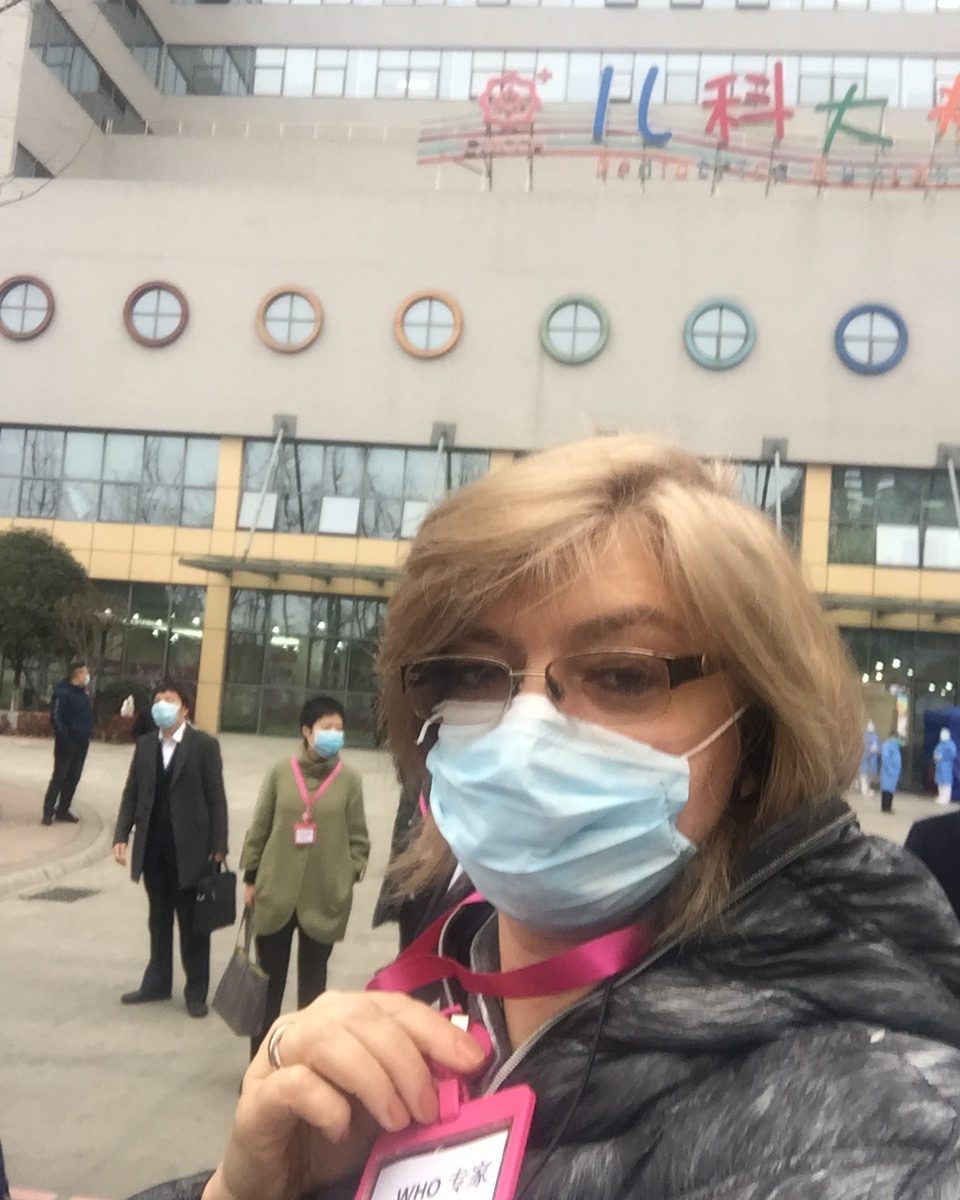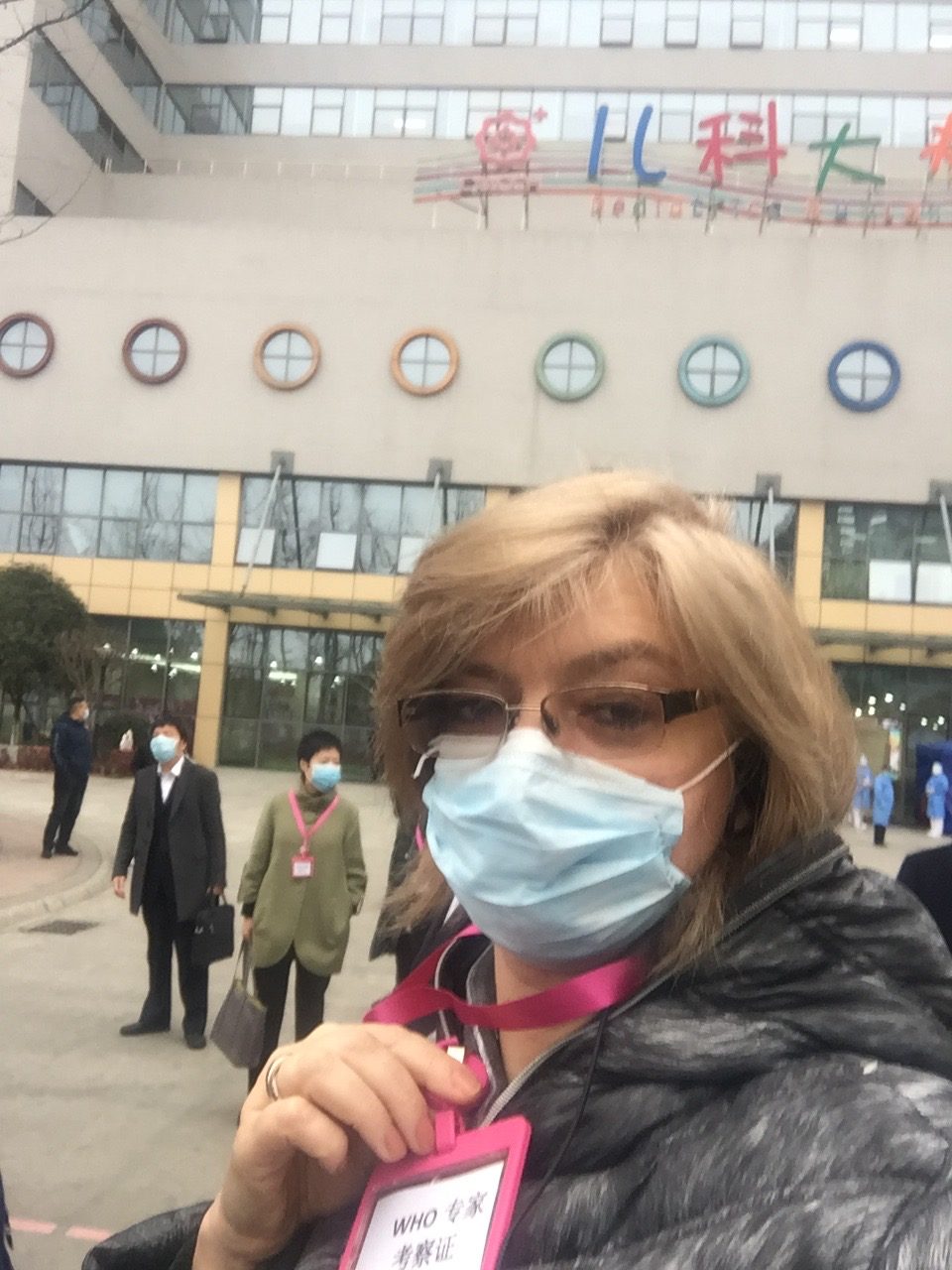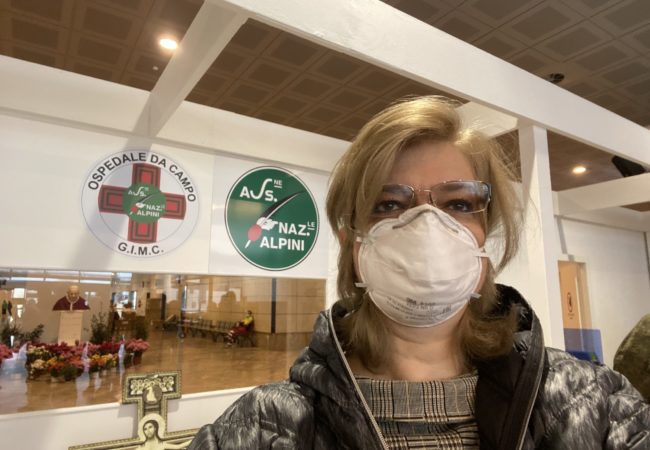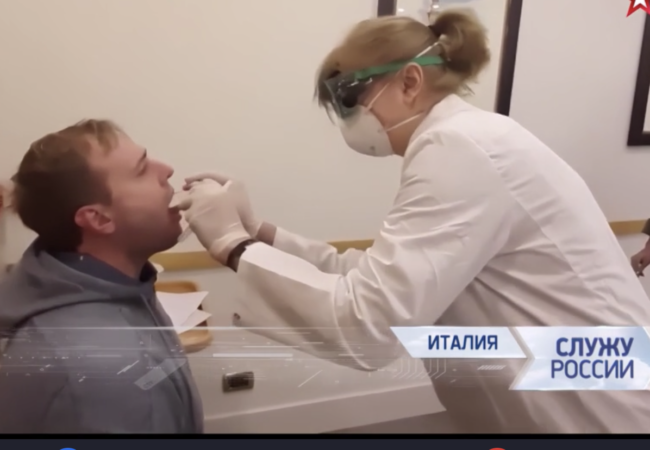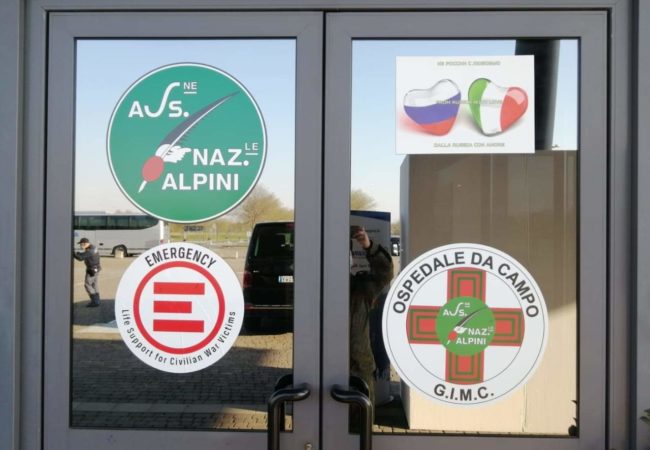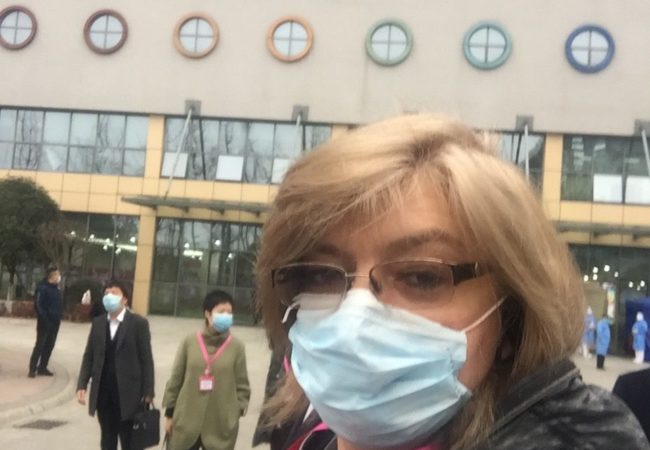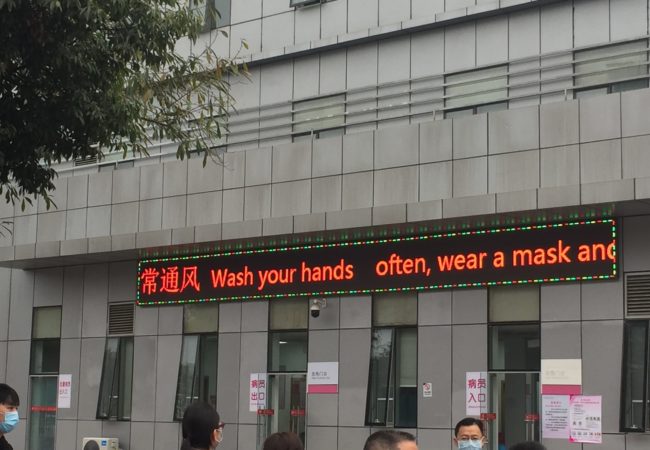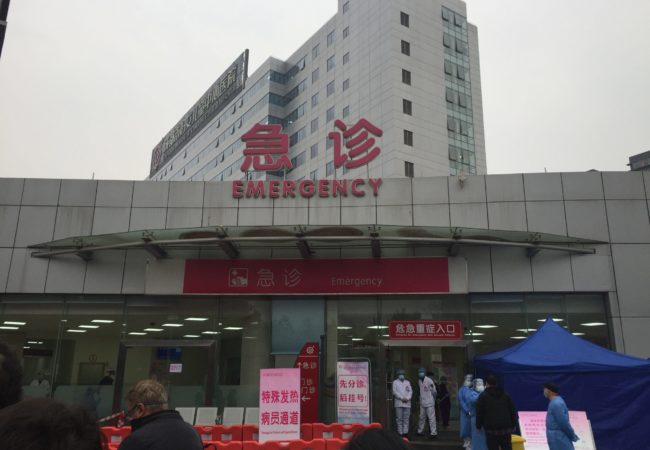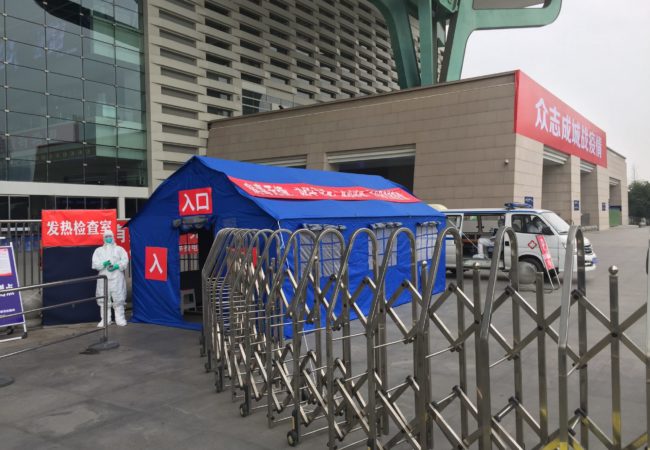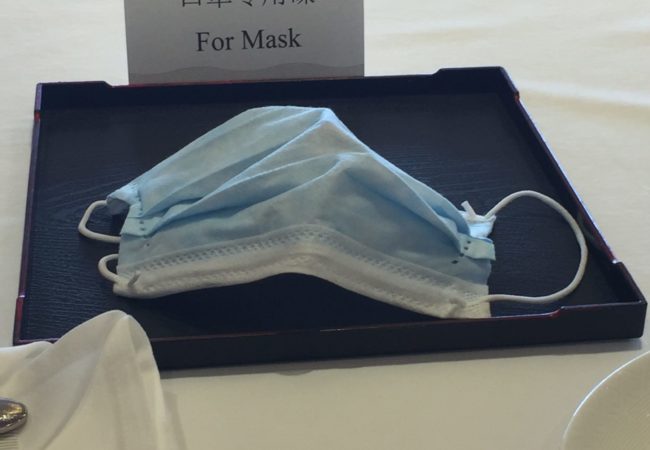In February 2020, ProMED-RUS Regional Top Moderator, Dr. Natalia Pshenichnaya, participated in a WHO-China Joint Mission on Coronavirus Disease 2019 (COVID-19). This mission was organized by WHO Director - General Dr. Tedros Adhanom Ghebreyesus, within the scope of the Global Outbreak Alert and Response Network (GOARN), which is a collaboration of institutions and networks, constantly on alert and ready to respond to outbreaks of international importance.
The Russian Ministry of Health sent several candidates for this mission to WHO GOARN. I was chosen, perhaps, because of my long-term participation as a consultant in the training project on influenza and SARs within the WHO global influenza program, as well as my activity as a moderator in the ProMED. ProMED is also a GOARN partner, which may have played a crucial role in my selection. It was a very interesting and, at the same time, stressful work – to be a part of the professional team of international high-level experts including, epidemiologists, clinicians, and virologists, under the leadership of Dr. Bruce Aylward, Assistant Director-General, WHO.
Our Chinese colleagues provided us the information about the epidemiology of the COVID-2019, evolution of virus, preventive measures that were carried out at points of entry and in the all public places. We saw the methodology of all steps of the clinical management - triage of patients, the zones in recognized COVID-hospitals for managing patients with suspected and mild confirmed forms of COVID-19, the organization of the flows of patients, treatment options (antivirals and supportive treatment), management of the severe patients in the negative pressure room within the fever clinics. We also have observed the video consultations and contact tracing system, and pharmaceutical stockpiles. We saw the high-level of social mobilization and awareness within the population.
For several days, we discussed with Chinese colleagues, the epidemiology, virus evolution, diagnosis, treatment, preventive measures, social mobilization and future research directions of COVID-19. The report with recommendations for China and other countries in which the epidemic was just beginning was developed as the main result of our mission. This report can be accessed here:
Russia, like a number of other countries, continues to use the experience of China in the fight against coronavirus. The introduction to timely restrictive measures and precise tracking of contacts still allow control over the epidemic and gain time for the developing a vaccine, new drug development, building up the capacity of the healthcare system, and education of specialists.
When Italy asked the international community to help fight the epidemic in the mid- March, several countries sent humanitarian aid and specialists to this country. I also arrived in the Italian region of Lombardy, on one of the 15 Russian planes sent to Italy, with humanitarian aid, military doctors and disinfectologists. Some background on the region includes: The population of Italy over 65 years of age is 23 percent. The average age of the inhabitants of the province of Bergamo, located in the region of Lombardy, is the oldest in the Italy – 45 years (in the other part of Italy the middle age is 43 years). In Bergamo, where about 120 thousand people live, there are 65 boarding houses for the elderly, each of them is home for 30 - 150 old people. As you know, the elderly are the most vulnerable group of the population to COVID. After the football match of the League Final at the San Siro stadium on February 19th, 2020 in Milan, there was a rapid spread of COVID-19 in Lombardy.
After a short period of time, the province of Bergamo began to feel an acute shortage of medical personnel, beds, ventilators. Overworked doctors and nurses in hospitals sometimes lost their vigilance and became infected themselves, which aggravated the shortage of personnel. Our team arrived in Italy at the peak of the epidemic and actively engaged in the fight against it. Military disinfectologists have been carrying out a very careful disinfection of nursing homes and the surrounding area in the province of Bergamo already for 2 weeks, to interrupt the transmission pathways. Thirty-two military medics who have experience in managing patients with severe acute respiratory infections (resuscitators, pulmonologists, infectious disease specialists, epidemiologists) have completed training on COVID-19 therapy algorithms adopted in Russia and Italy, training for infection prevention and control in hospitals, and having familiarized themselves with the management of medical documentation, adopted in Italy, have started working as part of international teams in a field hospital.
The hospital should be mentioned separately. It was deployed by the Alpine shooters in the premises of the trade fair in Bergamo in a matter of days, but is already equipped with modern respiratory equipment, a CT scanner and other necessary equipment for the diagnosis and treatment of COVID-19, including laboratory diagnostics. It also has installed ventilators donated by Russia to Italy. At the moment, there is a tendency to reduce the intensity of the epidemic in Italy and, including, in the province of Bergamo. We will win together! My task was to strengthen the knowledge of Russian doctors on the tactics of managing patients with severe acute respiratory infections, to familiarize them with the features of managing COVID patients adopted in different countries, to ensure compliance with infection control by the doctors themselves, and to adapt them to the algorithms of compliance with infection control in the new hospital. I'm going home after a week. Perhaps I will go further to another country where international assistance is still needed.
All throughout this time, I continued my activity as a ProMED-mail RUS moderator. Many thanks to my colleagues from our Russian-speaking team, who supported me very much in this, taking the main burden on themselves. Interest in our messages has increased, and the number of subscribers has increased significantly.
Natalia Pshenichnaya, MD, DSci., Professor in Infectious Diseases
ProMED-mail RUS Moderator
Moscow-Bergamo
